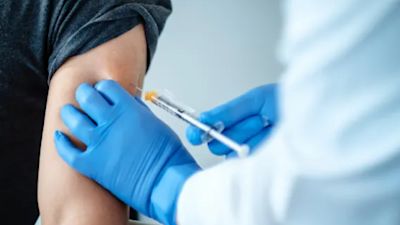Will the Pfizer vaccine make Covid-19 history or just less dangerous?

I was puzzled by Jonathan Van Tam’s comment that we don’t know whether the Pfizer/BioNTech vaccine will prevent transmission of Covid-19 even if - as claimed - it has 90% efficacy in preventing us becoming ill.
So I asked Michael Gove's favourite people, the experts.
What they explained was that some vaccines prevent us becoming ill with a virus but don't prevent us having the virus and being able to infect others.
This is how one put it: "If a vaccine is effective, the remaining question is 'what type of efficacy?'"
Does the vaccine protect against being infected (AND being sick of course), or only against being sick, or even possibly only against being seriously sick (that is not being hospitalised)?
A vaccine that protects people against symptoms may not also be able to protect them from carrying the virus.
In such cases, people may still be contagious. Ideally the vaccine would 'sterilise' the patient, that is it would eliminate completely the virus from their respiratory tract.
That said, a vaccine that only protects against symptoms or even simply against hospitalisation would still be useful. Detailed analysis of the clinical trial results will address these questions.
This distinction between a vaccine that totally sterilises us and one that in effect turns us into asymptomatic sufferers (sufferers without symptoms) really matters - because if the Covid-19 vaccine neutralises symptoms but does not eliminate infections, Covid-19 will be with us probably forever, like the flu.
It won't be as bad as it is now, but it won’t be eliminated altogether. And that will have significant long term social, cultural and economic implications.
To be clear, most of us would presumably take any kind of vaccine that gave some sort of protection. So the Pfizer/BioNTech breakthrough is important. We just don’t know yet quite how important.